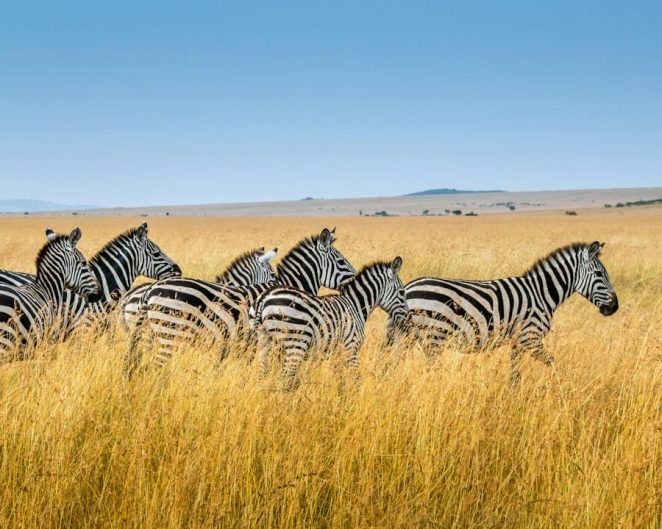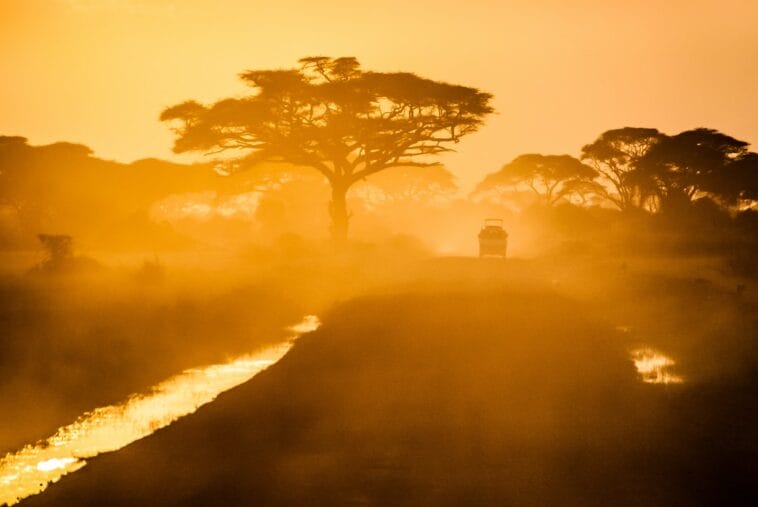Volunteering in Africa is not only a rewarding experience for individuals, but it also plays a crucial role in the development and progress of local communities. Africa is a continent that faces numerous challenges, including poverty, lack of access to education and healthcare, environmental degradation, and gender inequality. Volunteering provides an opportunity for individuals to contribute their skills, time, and resources to address these issues and make a positive impact.
Volunteering in Africa allows individuals to immerse themselves in the local culture, gain a deeper understanding of the challenges faced by communities, and work towards sustainable solutions. It is a chance to step out of one’s comfort zone, learn new skills, and make lifelong connections with people from different backgrounds. Moreover, volunteering in Africa can be a transformative experience that broadens one’s perspective and fosters personal growth.
Key Takeaways
- Volunteering in Africa is important for making a positive impact on communities and the environment.
- Top programs for volunteering in Africa include wildlife conservation, education, healthcare, sustainable agriculture, and women’s empowerment.
- Volunteering in the Sahara Desert presents unique opportunities and challenges, such as working with nomadic communities and adapting to extreme weather conditions.
- African wildlife conservation efforts focus on protecting endangered species, such as elephants and rhinos, from poaching and habitat loss.
- Teaching and education programs aim to improve access to education in African communities, particularly for girls and marginalized groups.
Top Programs for Volunteering in Africa: Overview
There are various types of volunteering programs available in Africa, catering to different interests and skill sets. Some of the top organizations that offer volunteering opportunities in Africa include Volunteer Africa, Projects Abroad, African Impact, and Global Vision International (GVI). These organizations provide a wide range of programs in areas such as wildlife conservation, education, healthcare, sustainable agriculture, women empowerment, and cultural exchange.
Volunteer Africa offers programs in countries like Kenya, Tanzania, South Africa, and Ghana. Their projects focus on areas such as wildlife conservation, community development, teaching English, and healthcare. Projects Abroad has programs in over 30 African countries and offers opportunities in fields like medicine, education, journalism, and sports coaching. African Impact specializes in community development projects across several African countries and focuses on areas like education, healthcare, wildlife conservation, and women empowerment. GVI offers programs in countries like South Africa, Kenya, and Ghana and focuses on areas such as wildlife conservation, community development, and education.
Volunteering in the Sahara Desert: Opportunities and Challenges
Volunteering in the Sahara Desert presents unique opportunities and challenges. The Sahara is the largest hot desert in the world, covering a vast area across North Africa. The region faces challenges such as water scarcity, desertification, and limited access to resources. However, there are various projects available that aim to address these issues and promote sustainable development.
One of the projects in the Sahara Desert is water conservation. Volunteers can work on initiatives that focus on building wells, water catchment systems, and irrigation systems to provide communities with access to clean water for drinking and agriculture. These projects not only improve the quality of life for local communities but also contribute to environmental conservation by reducing water scarcity.
Another project in the Sahara Desert is sustainable agriculture. Volunteers can work on initiatives that promote organic farming techniques, permaculture, and agroforestry to combat desertification and improve food security. These projects aim to empower local communities with sustainable farming practices that are resilient to the harsh desert conditions.
African Wildlife Conservation: Protecting Endangered Species
| Endangered Species | Population | Threats | Conservation Efforts |
|---|---|---|---|
| African Elephant | 415,000 | Poaching, habitat loss | Anti-poaching patrols, habitat restoration |
| Black Rhino | 5,500 | Poaching, habitat loss | Translocation, community education |
| Cheetah | 7,000 | Habitat loss, human-wildlife conflict | Conservation breeding, habitat restoration |
| Gorilla | 1,063 | Poaching, habitat loss | Ecotourism, community conservation |
Africa is home to some of the most iconic and endangered species on the planet, including elephants, rhinos, lions, and gorillas. However, these species face numerous threats such as habitat loss, poaching, and human-wildlife conflict. Volunteering in African wildlife conservation projects provides an opportunity to protect these species and their habitats.
One of the projects in African wildlife conservation is wildlife rehabilitation. Volunteers can work in wildlife sanctuaries and rehabilitation centers, assisting with the care and rehabilitation of injured or orphaned animals. These projects play a crucial role in rescuing and rehabilitating animals that have been affected by poaching, habitat loss, or other human activities.
Another project in African wildlife conservation is anti-poaching initiatives. Volunteers can work alongside rangers and conservationists to patrol protected areas, monitor wildlife populations, and combat illegal wildlife trade. These projects aim to protect endangered species from poaching and raise awareness about the importance of conservation.
Teaching and Education: Improving Access to Education in African Communities
Access to education is a significant challenge in many African communities. Volunteering in teaching and education projects provides an opportunity to improve access to quality education and empower individuals with knowledge and skills.
One of the projects in teaching and education is teaching English. Volunteers can work in schools or community centers, teaching English to children and adults. English language skills are highly valued in many African countries as they open up opportunities for employment and higher education.
Another project in teaching and education is building schools. Volunteers can work on construction projects, helping to build schools and classrooms in rural areas where access to education is limited. These projects aim to provide safe and conducive learning environments for children who would otherwise have limited access to education.
Health and Medical Programs: Providing Healthcare to Underserved Communities

Access to healthcare is a significant challenge in many African communities, particularly in rural areas. Volunteering in health and medical programs provides an opportunity to provide healthcare services to underserved communities and promote public health.
One of the projects in health and medical programs is medical outreach programs. Volunteers can work alongside healthcare professionals, providing medical care, conducting health screenings, and organizing health education workshops. These programs aim to reach remote communities that have limited access to healthcare services.
Another project in health and medical programs is HIV/AIDS prevention initiatives. Volunteers can work on projects that focus on raising awareness about HIV/AIDS, promoting safe sex practices, and providing support to individuals living with HIV/AIDS. These initiatives play a crucial role in reducing the spread of HIV/AIDS and supporting affected individuals.
Sustainable Agriculture and Environmental Conservation: Combating Climate Change in Africa
Africa is highly vulnerable to the impacts of climate change, including droughts, floods, and desertification. Volunteering in sustainable agriculture and environmental conservation projects provides an opportunity to combat climate change and promote sustainable development.
One of the projects in sustainable agriculture and environmental conservation is reforestation. Volunteers can work on initiatives that involve planting trees, restoring degraded ecosystems, and promoting sustainable land management practices. These projects help to sequester carbon, prevent soil erosion, and provide habitats for wildlife.
Another project in sustainable agriculture and environmental conservation is organic farming initiatives. Volunteers can work on organic farms, learning and promoting sustainable farming practices that minimize the use of chemicals and protect soil health. These initiatives aim to improve food security, promote biodiversity, and reduce the environmental impact of agriculture.
Women Empowerment and Gender Equality: Supporting Women’s Rights in African Communities
Women in Africa face numerous challenges, including gender-based violence, limited access to education and healthcare, and economic inequality. Volunteering in women empowerment and gender equality projects provides an opportunity to support women’s rights and promote gender equality.
One of the projects in women empowerment is microfinance programs. Volunteers can work with local organizations that provide microloans and business training to women entrepreneurs. These programs aim to empower women economically by providing them with the resources and skills to start or expand their own businesses.
Another project in women empowerment is women’s health initiatives. Volunteers can work on projects that focus on reproductive health education, maternal healthcare, and combating gender-based violence. These initiatives aim to improve access to healthcare services for women and raise awareness about their rights.
Cultural Exchange and Travel: Experiencing African Culture and Traditions
Cultural exchange and travel play a crucial role in fostering understanding, appreciation, and respect for different cultures. Volunteering in cultural exchange programs provides an opportunity to immerse oneself in African culture, learn from local communities, and contribute to cross-cultural understanding.
One of the programs in cultural exchange is homestays. Volunteers can live with local families, experiencing their daily lives, traditions, and customs. This immersive experience allows volunteers to gain a deeper understanding of the local culture and build meaningful connections with community members.
Another program in cultural exchange is cultural immersion programs. Volunteers can participate in activities such as traditional dance and music workshops, language classes, and cooking lessons. These programs provide an opportunity to learn about African culture firsthand and engage with local communities.
Making a Difference through Volunteering in Africa
Volunteering in Africa offers a unique opportunity to make a difference in local communities while gaining personal growth and cultural understanding. Whether it is through wildlife conservation, education, healthcare, sustainable agriculture, women empowerment, or cultural exchange, there are numerous ways to contribute to the development and progress of Africa.
By volunteering in Africa, individuals can play a part in addressing the challenges faced by communities and contribute to sustainable solutions. It is an opportunity to step out of one’s comfort zone, learn new skills, and make lifelong connections with people from different backgrounds. Moreover, volunteering in Africa allows individuals to gain a deeper understanding of the continent’s rich culture, traditions, and challenges.
In conclusion, volunteering in Africa is not only a way to give back but also a transformative experience that has the potential to create lasting change. By considering volunteering in Africa, individuals can make a positive impact on local communities and contribute to the continent’s development and progress.
If you’re interested in volunteering in Africa, you may also want to check out this article on African Sahara’s website: Africa Vacations: The African Big 5 in 24 Hours. It provides a comprehensive guide to experiencing the famous African Big 5 game animals within a day, making it a perfect option for those with limited time but still want to witness the incredible wildlife of Africa.


